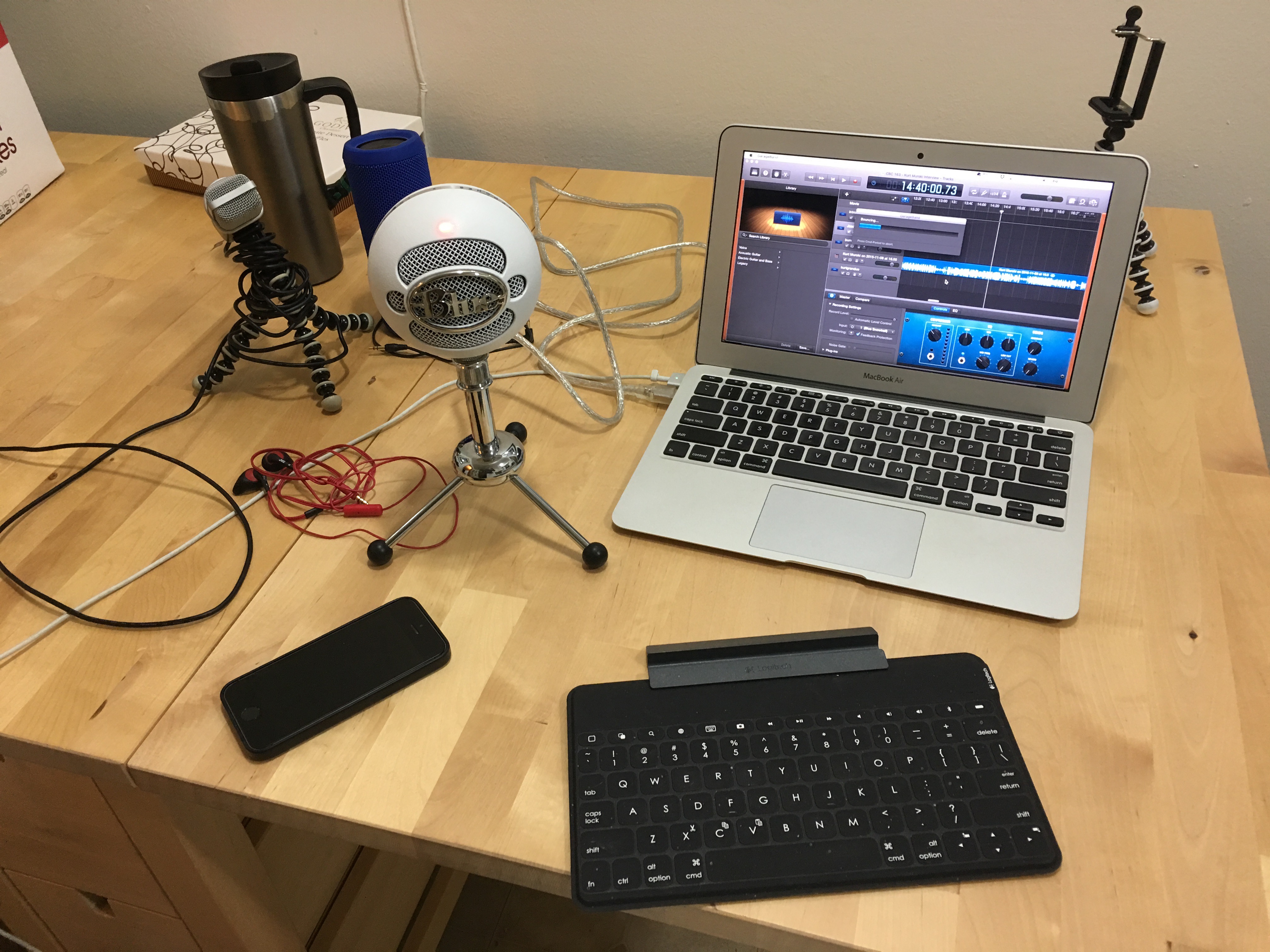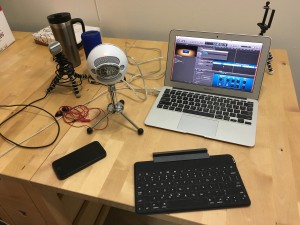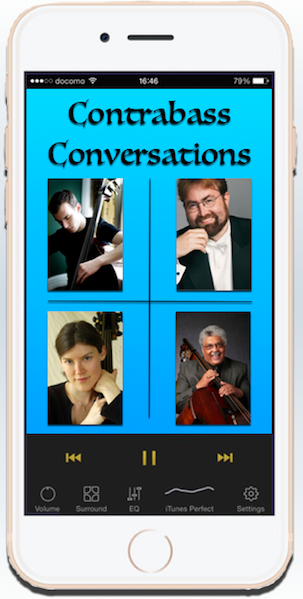I’m pretty sure that the first podcast I discovered was, like many tech-minded people, Leo Laporte’s This Week in Tech.
This discovery of it coincided neatly with my purchase of an iPod Video (my first MP3 player). Though I was having plenty of fun loading up all my ripped CDs and downloaded episodes of Lost (I can’t believe that I used to actually watch shows on that tiny screen), listening to podcasts quickly became the predominant use of my new device. I got into a ton of early podcasts like Keith and the Girl, The Bitterest Pill, Scott Sigler’s podiobooks, and Filmspotting, and plugging in my iPod and loading up all the newest episodes became nearly as important for my morning ritual as that first cup of coffee.
Being a musician, one of my first searches was for music podcasts, and I quickly became a Project Studio Network junkie, utterly loving their production value and engaging skits and bits while perpetually yearning for more content from these imaginative hosts. I also discovered the DoubleBassCast by Peter Jones, which debuted in 2005 (extremely early for the podcasting world) but went months or years without putting out an episode (not that I know anything about that!).
You don’t have to think about it very long before you realize how radically Internet distribution changes everything. The potential to reach into any nook and cranny of the globe is hard to really comprehend, and it is profoundly changing how we discover, consume, and interact with our chosen content. Listening to Peter’s show, I realized the power of this medium to reach everyone in a specific community (the double bass in our case), and I began forming plans to start my own show.
It takes a certain amount of moxie to do start up something like this. Who the heck am I, after all, to think that I have something worth offering a large audience? How would this all work? What gear did I need? I wanted to do an interview show, but how would I convince people to talk to me?
I had to find hosting. I had to research gear. I had to learn about production, distribution, promotion, etc. All this was outside of my comfort zone as a classical bass player and teacher. Starting to blog in the mid-2000s just sort of happened and felt like a gradual extension of what I was already doing. Starting the podcast felt like a big step and more of a commitment than anything that I’d been doing online.
Producing my first episode was actually kind of nerve-wracking. I kind of felt like I was taking an audition, actually! Listening back to these first episodes, I realize how nervous I was to actually be doing this. After all, I had no one to talk with yet! Though an outside observer might think it inevitable that I would end up interviewing most of the major contemporary figures in the world of bass, to the Jason of episodes 1-3 that was far from the case!
Things really started to cook on Episode 4 with Lyric Opera of Chicago bassist Andy Anderson, and things only grew from there. John Grillo, my eventual co-host, was my third guest, and he and I ended up doing more than a dozen episodes and interviews together in the late 2000’s.
I’ve always been pretty reflective about this work that I’ve been doing, writing numerous posts about the possibilities of this medium as a means of communication, education, oral history, etc. I’ve also put out some major milestone podcasts on anniversaries (particularly after the first full year of the podcast and for the 100th episode).
About ten episodes into the podcast, I realized that Contrabass Conversations was really what I should be focusing on, not the blog. The podcast had depth and value, while the blog, while fun to do and a good venue for my occasional writing, had 1/10th the lasting impact of the podcast. The problem was that podcasting was still a relatively nascent technology. Most people weren’t actively listening to podcasts and weren’t really sure what a podcast even was. Also, the necessity of either downloading and syncing to an iPod or else having to listen in front of the computer limited the 2007/2008 audience.
Enough people got what I was doing, though, and I remember clearly going to the 2009 International Society of Bassists Convention and having what would probably be the closest experience I’d ever have to celebrity status. It’s the only time in my life where people actually turned around and recognized me simply from the sound of my voice.
After my recent hiatus from production, I come back into the podcasting world and can’t help but marvel at how much things have changed. Shows like Serial have raised public consciousness of the medium immensely, but even more important than that is the ubiquity of the smartphone and the new ease in accessing and consuming content through this interface without ever having to involve a computer. Podcasting apps are now built into devices or are easily accessible, and a great number of podcasts (including Contrabass Conversations in just a couple of weeks!) have their own app. Car manufacturers are designing systems with podcasting built in. It’s really exciting.
So, what do I like about podcasting? Here are a few things that make me happy every time I think about the podcast:
- being able to talk to interesting and high-achieving people n the world of bass and learn directly from them
- distribute these conversations worldwide
- build a body of knowledge for future generations: an “oral history” of the double bass in many respects
- provide a service to bassists worldwide
- find ways to marry technology with our art form
- create a sense of community
I am really excited about the upcoming Contrabass Conversations app. It will be more than just a method of listening to the shows (though that’s certainly a core feature). It’s going to be an exciting few months around here—stay tuned!
Bass News Right To Your Inbox!
Subscribe to get our weekly newsletter covering the double bass world.



